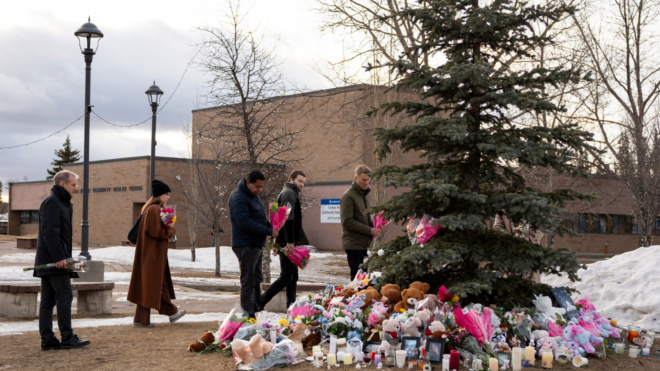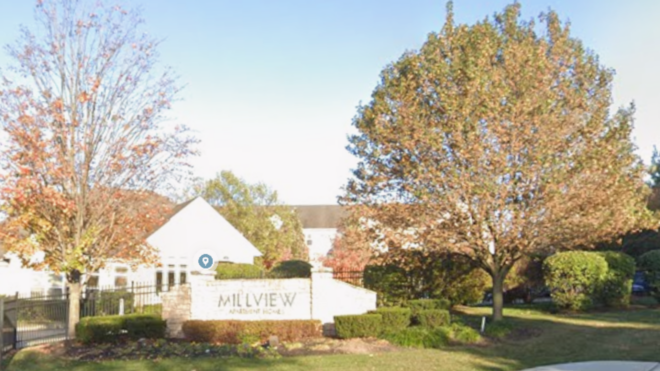
Every election year, especially the last two where there was (and is) potential for a woman to take up residence in the highest office in the land, suffragette Susan B. Anthony's gravesite is adorned with "I voted" stickers. People flock to her resting place to say their silent thank-yous and promises to vote. And I, on a surface level, understand way.
After all, growing up, we learned that Susan B. Anthony was the president of the National Woman Suffrage Association and a women's rights activist who played a pivotal role in history. Though she never lived to see it happen, she paved a lot of pathways for equal pay, labor rights and, of course, women's right to vote.
Well. White women's rights, anyway.
Our history books tend to leave out an important detail: Susan B. Anthony was a racist.
Though champions of her life's work argue that she and her sister in suffragette arms, Elizabeth Cady Stanton, were more or less a "product of their time," there are some inarguable facts.
For one, the both endorsed the lynching of Black people in the South.
And forgetting to mention this to our children does them a huge disservice.
"It is important to consider a historical figure's legacy in its entirety," says Lifting as We Climb: Black Women's Battle for the Ballot Box author Evette Dionne. "Susan B. Anthony helped achieve a great thing for white women. What about Indigenous women? What about Black women? What about Latinx women? By only considering the good things Anthony achieved, we are again sending the message that white women are the priority within feminism and that what benefits them benefits the collective. That is simply untrue."
Yet time and time again, we see Susan's legacy preserved for the sake of preservation on everything from money to Barbie dolls.
And that celebration has consequences that are both subliminal and tangible.
"It makes me feel both sad and angry for a number of different reasons," Dionne says of seeing women like Susan being constantly celebrated. "White women suffragists, like Susan B. Anthony and Elizabeth Cady Stanton… intentionally excluded Black women from women's rights organizations in order to align themselves with white Southern suffragists who said that giving white women the right to vote could extend the toehold of white supremacy. When we celebrate these women without considering their full legacies, it sends the message that the Black people they threw under the bus and left open to mass violence were simply collateral damage. That is sobering."
People are complex, and glossing over those complexities in favor of honoring someone's legacy simply breeds ignorance.
In a time where we not only have the world's knowledge right at our fingertips, we are regularly assaulted with misinformation. That misinformation prevents us from making fair and balanced decisions and muddles the prospects for our society's future: our children.
Supporting honoring the memory of someone like Susan B. Anthony with blind reverence signals to kids it's OK to actively disregard the needs of BIPOC. In 2020, we've repeatedly heard from fellow Black and WOC mothers the need for us to have their backs, to actively teach anti-racism, and to understand that we aren't free until we are all free. This begins by giving our kids the right tools to make the right decisions and consider the needs of the many over the needs of the few.
"There are so many Black women suffragists worth celebrating," advises Dionne.
"Fannie Lou Hamer was an integral leader within the Civil Rights Movement. She nearly died in a Mississippi prison for attempting to register Black voters, but she still eventually ran for office.
"Mary McLeod Bethune opened a school for Black girls in Daytona Beach, Florida. When Black voters were facing obstacles to the ballot box, she baked goods and sold them door to door to pay for other people's poll taxes. She taught night classes to help Black voters pass poll tests. When the Ku Klux Klan threatened to burn down her school, she stayed outside all night. The next day, she led more than 100 Black voters to the county clerk's office to help them register to vote.
"Ida B. Wells-Barnett traveled the world over to fight for a lynching amendment that would end the practice. After her Memphis newspaper office was burned to the ground, she moved to Chicago where she created the Alpha Suffrage Club and helped elect the city's first Black alderman. These women put themselves on the line to fight for suffrage. They are more than worth celebrating."
By not only divulging Susan B. Anthony's complete legacy but also teaching our kids who else is worth uplifting, we can start to heal our problematic realities.
"Children deserve the truth and that begins with teaching them accurate, well-rounded, and full history rather than partial history that only privileges those who were able to shape it in their favor," Dionne states. "When we teach children the truth about historical figures framed as heroes, it shows them very early on that history is messy, people are complex, and that movements are bigger than a single person. I would hope that encourages them to become involved in freedom movements. Suffragists were ordinary people who decided to stand up and fight injustice. Any person can achieve what they did. Children just first have to know that it is possible."
None of use are perfect, myself included. But learning this and passing that knowledge onto our kids is a simple way we can truly begin to change the world to make it an equitable place for all people. After all, when you know better, you do better, and that's all we truly want for our kids.




